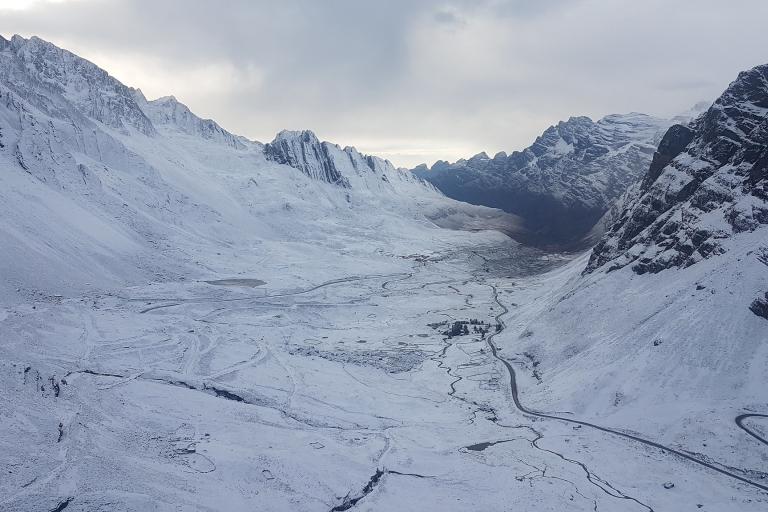Mountains Matter
The high mountain regions are home to 1 billion people, are the source of freshwater to at least 1.9 billion people and are crucial for regulating the global climate system. Preservation of mountain ecosystem functions is therefore essential to global water, food and energy security.

The high mountain regions are home to 1 billion people, are the source of freshwater to at least 1.9 billion people and are crucial for regulating the global climate system. Preservation of mountain ecosystem functions is therefore essential to global water, food and energy security.
In view of the importance of mountains to the rest of the world, International Mountain Day is commemorated on 11 December with the underlying theme of Mountains Matter.
At the UN Climate Change Conference, COP25, in Madrid, WMO took part in events to highlight the urgency of more ambitious climate action to protect mountain ecosystems and the cryosphere.
WMO Secretary-General Petteri Taalas announced that WMO will be joining the Mountain Partnership. Spearheaded by the Food and Agriculture Organization, this is a United Nations voluntary alliance of partners dedicated to improving the lives of mountain peoples and protecting mountain environments around the world.
FAO Director-General Qu Dongyu and Mr Taalas told a side event that mountains matter not just to local communities and ecosystems but to heavily populated countries such as India and China and small island developing states.
"Mountain glaciers are a source of freshwater for most big rivers in the world," said Mr Taalas. That is a major challenge for big countries like China, india and of course countries like Nepal and Bhutan,“ he said, invoking short-term problems of flooding and glacial outbursts and longer-term water stress.
WMO hosted a A High Mountain Summit in October, which issued a Call for Action in the face of rapid melting of the Earth’s frozen peaks and the consequences for food, water and human security, as well as for ecosystems, the environment and economies.
The three-day summit identified priority actions to support more sustainable development, disaster risk reduction and climate change adaptation both in high-mountain areas and downstream.
“Climate change and development are creating an unprecedented crisis in our high mountain earth system that threatens the sustainability of the planet. There is great urgency to take global action now to build capacity, invest in infrastructure and make mountain and downstream communities safer and more sustainable. This action must be informed by science, local knowledge and based on transdisciplinary approaches to integrated observations and predictions,” it says.
Participants committed to the goal that people who live in mountains and downstream should have open access to hydrological, cryospheric, meteorological, and climate information services to help them adapt to and manage the threats imposed by escalating climate change,” says the Call to Action.
The summit also backed a new Integrated High Mountain Observation and Prediction Initiative as one of the tools to address the challenges of climate change, melting snow and ice and water-related hazards and stress.
"There is a need to improve the observing system in mountain areas,“ said Mr Taalas. They are the most difficult areas to forecast.










